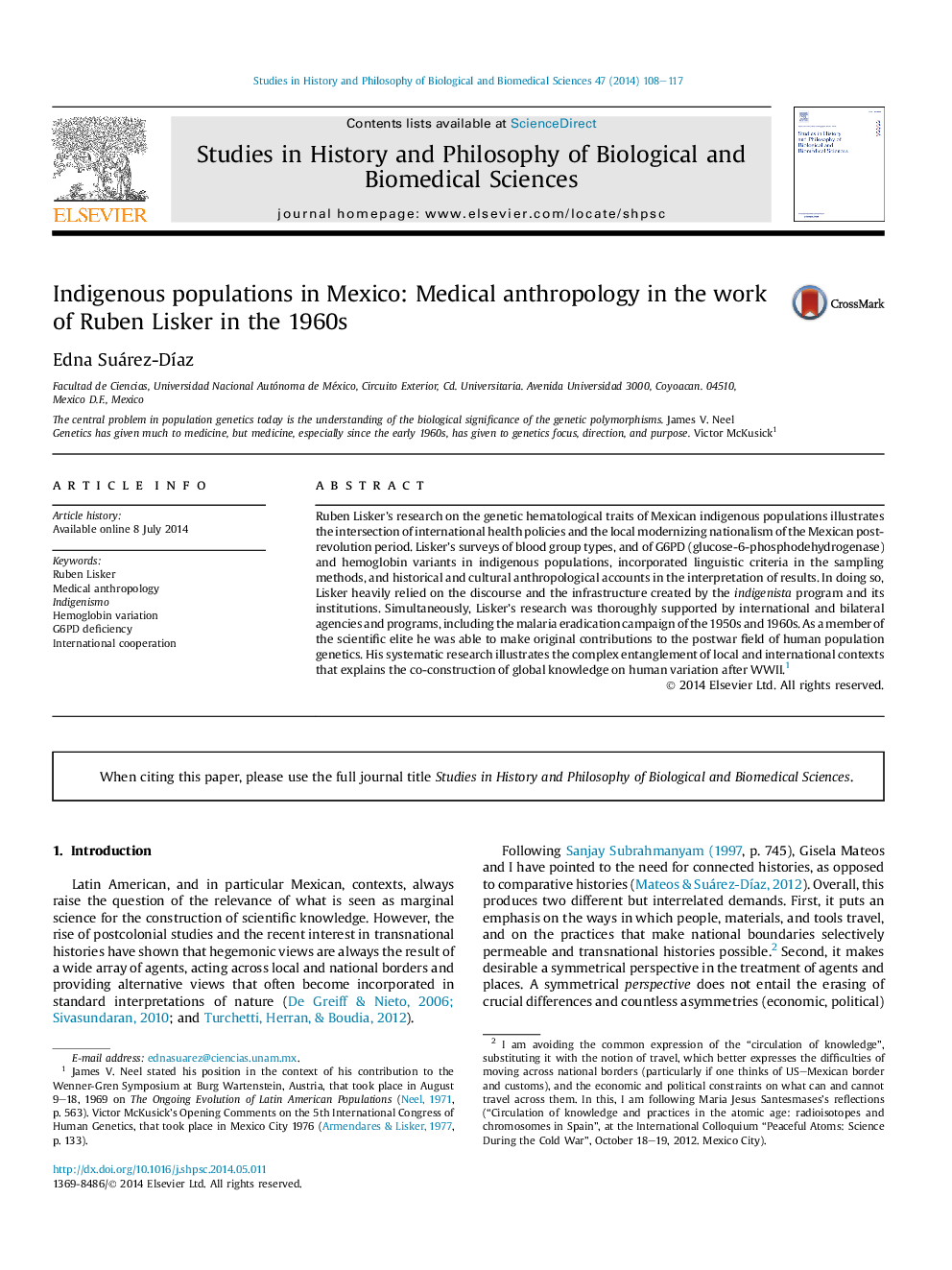| کد مقاله | کد نشریه | سال انتشار | مقاله انگلیسی | نسخه تمام متن |
|---|---|---|---|---|
| 7552645 | 1490520 | 2014 | 10 صفحه PDF | دانلود رایگان |
عنوان انگلیسی مقاله ISI
Indigenous populations in Mexico: Medical anthropology in the work of Ruben Lisker in the 1960s
ترجمه فارسی عنوان
جمعیت بومیان مکزیک: انسان شناسی پزشکی در اثر روبن لیسکر در دهه 1960
دانلود مقاله + سفارش ترجمه
دانلود مقاله ISI انگلیسی
رایگان برای ایرانیان
کلمات کلیدی
موضوعات مرتبط
علوم زیستی و بیوفناوری
علوم کشاورزی و بیولوژیک
علوم کشاورزی و بیولوژیک (عمومی)
چکیده انگلیسی
Ruben Lisker's research on the genetic hematological traits of Mexican indigenous populations illustrates the intersection of international health policies and the local modernizing nationalism of the Mexican post-revolution period. Lisker's surveys of blood group types, and of G6PD (glucose-6-phosphodehydrogenase) and hemoglobin variants in indigenous populations, incorporated linguistic criteria in the sampling methods, and historical and cultural anthropological accounts in the interpretation of results. In doing so, Lisker heavily relied on the discourse and the infrastructure created by the indigenista program and its institutions. Simultaneously, Lisker's research was thoroughly supported by international and bilateral agencies and programs, including the malaria eradication campaign of the 1950s and 1960s. As a member of the scientific elite he was able to make original contributions to the postwar field of human population genetics. His systematic research illustrates the complex entanglement of local and international contexts that explains the co-construction of global knowledge on human variation after WWII.1
ناشر
Database: Elsevier - ScienceDirect (ساینس دایرکت)
Journal: Studies in History and Philosophy of Science Part C: Studies in History and Philosophy of Biological and Biomedical Sciences - Volume 47, Part A, September 2014, Pages 108-117
Journal: Studies in History and Philosophy of Science Part C: Studies in History and Philosophy of Biological and Biomedical Sciences - Volume 47, Part A, September 2014, Pages 108-117
نویسندگان
Edna Suárez-DÃaz,
